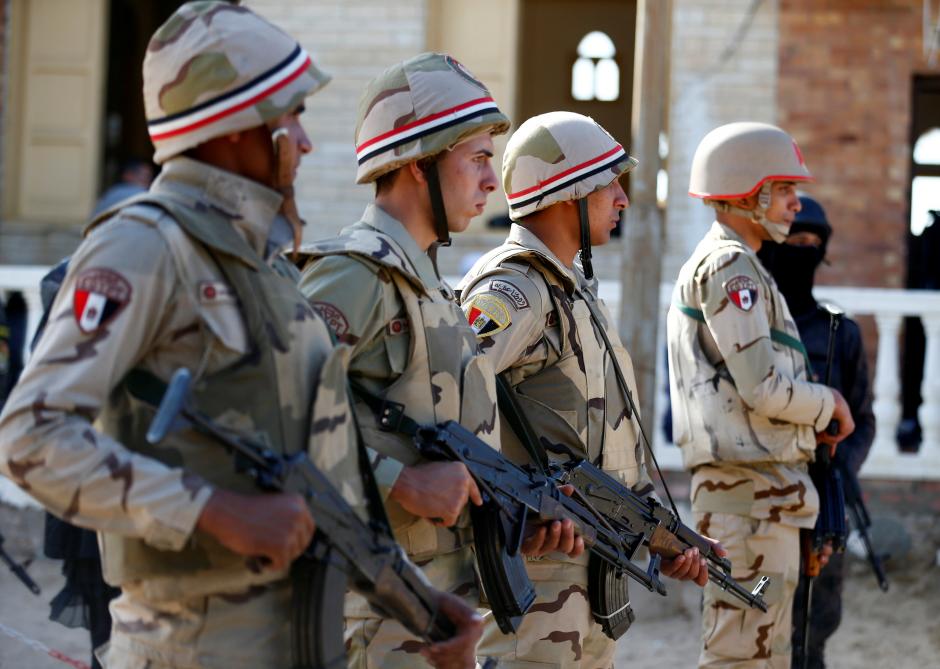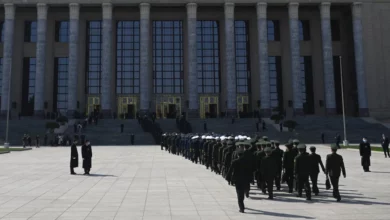As we approach the first anniversary of the 25 January revolution, the ruling Supreme Council of the Armed Forces (SCAF) is likely to offer the Egyptian people “gifts”; concessions to deter them from taking to the streets again, writes columnist Emad Eddin Hussein in privately owned Al-Shorouk.
Leaks about Mubarak’s trial being concluded in forty days seem to be one of these gifts. The decision to hold the first session of parliament on 23 January is another. And there’s also the maximum wage law and the cabinet decision to begin distributing affordable housing units.
But the “trial of the century,” as the media has named it, doesn’t seem to be going so well. The prosecution announced Wednesday that Interior Ministry and General Intelligence Services refused to cooperate with investigations into the criminal charges brought against Mubarak and his co-defendants. Hence, Mubarak is being tried for his political responsibility rather than based on concrete evidence of giving orders to shoot protesters.
State-run Al-Akhbar details the evidence presented by the prosecution, including video footage that purportedly shows peaceful protesters being killed and the testimonies of more than 2,000 police officers, forensic doctors and witnesses confirming the “systemized killing” of protesters across Egypt in the early days of the 25 January uprising.
On Tuesday, lead prosecutor Mostafa Suleiman accused Mubarak of tyranny and corruption, and said the former president devoted the last decade of his rule to ensuring that his son, Gamal, would succeed him. Whereas Suleiman’s case has been hailed by the public and the press, Ahmed al-Sawy criticizes it as irrelevant to the charges in an Al-Shorouk column titled “Mubarak’s acquittal.”
“The prosecution speaks to the public with slogans that have no direct relevance to the legal technicalities of the case,” he writes, asking readers to review its transcription to find out the “amazing truth”: either the prosecution did not do its job or there is no case to make in the first place.
In privately owned Al-Tahrir, Editor-in-Chief Ibrahim Eissa adds that the ruling military council and key figures in Mubarak’s regime should be added to the defendant list if, as Suleiman argued Tuesday, the charges are for corrupting politics in Egypt. He makes a case against current Prime Minister Kamal al-Ganzouri in particular, running his resignation letter submitted to Mubarak in 1999 in which Ganzouri praised Mubarak’s rule and remarked on how he improved the lives of Egyptians. Eissa argues that this makes him complicit in Mubarak's corruption.
The crackdown on civil society and human rights groups last Thursday is another reason most newspapers cite for people to take to the streets again. The April 6 Youth Movement has confirmed it will continue mobilizing people to come out and demand their rights, despite the recent detention of four of its members.
The Muslim Brotherhood's Freedom and Justice Party (FJP) takes a more diplomatic stance on the issue. The party sees the crackdown on human rights agencies as legally justified, and frames it in its party-run Freedom and Justice paper as part of the fight against US hegemony in Egypt. The story cites recent statements from US officials threatening to block aid to Egypt if these repressive practices continue.
Still the Brotherhood, along with several political groups, is calling on people to celebrate the revolution’s first anniversary on 25 January, according to the Freedom and Justice paper. Along with the celebrations, the groups will call for the trial and punishment of all those responsible for killing protesters.
As for the SCAF's other accomplishments thus far, the first part of the final stage of People's Assembly elections has ended. Official results are expected to be announced on Saturday. The FJP continues to lead, based on preliminary results. One issue gaining importance is the Advisory Council's recent proposal to increase the number of military-appointed members of parliament from 10 to 30, a proposal that many see as contradicting the March Constitutional Declaration and a means to increase the Advisory Council's influence on the parliament.
Egypt's papers:
Al-Ahram: Daily, state-run, largest distribution in Egypt
Al-Akhbar: Daily, state-run, second to Al-Ahram in institutional size
Al-Gomhurriya: Daily, state-run
Rose al-Youssef: Daily, state-run
Al-Dostour: Daily, privately owned
Al-Shorouk: Daily, privately owned
Al-Wafd: Daily, published by the liberal Wafd Party
Youm7: Daily, privately owned
Al-Tahrir: Daily, privately owned
Freedom and Justice: Daily, published by the Muslim Brotherhood's Freedom and Justice Party
Sawt al-Umma: Weekly, privately owned
Al-Arabi: Weekly, published by the Nasserist Party




